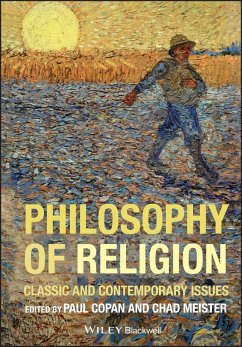
Dante's Deadly Sins
Moral Philosophy in Hell
Mitwirkender: Belliotti, Raymond Angelo
Versandkostenfrei!
Versandfertig in über 4 Wochen
112,99 €
inkl. MwSt.
Weitere Ausgaben:

PAYBACK Punkte
56 °P sammeln!
Dante's Deadly Sins is a unique study of the moral philosophy behind Dante's master work that considers the Commedia as he intended, namely, as a practical guide to moral betterment. Focusing on Inferno and Purgatorio , Belliotti examines the puzzles and paradoxes of Dante's moral assumptions, his treatment of the 7 deadly sins, and how 10 of his most powerful moral lessons anticipate modern existentialism. Analyzes the moral philosophy underpinning one of the greatest works of world cultureSummarizes the Inferno and Purgatorio , while underscoring their moral implicationsExplains and evaluate...
Dante's Deadly Sins is a unique study of the moral philosophy behind Dante's master work that considers the Commedia as he intended, namely, as a practical guide to moral betterment. Focusing on Inferno and Purgatorio , Belliotti examines the puzzles and paradoxes of Dante's moral assumptions, his treatment of the 7 deadly sins, and how 10 of his most powerful moral lessons anticipate modern existentialism.
Analyzes the moral philosophy underpinning one of the greatest works of world culture
Summarizes the Inferno and Purgatorio , while underscoring their moral implications
Explains and evaluates Dante's understanding of the 'Seven Deadly Sins' and the ultimate role they play as the basis of human transgression.
Provides a detailed discussion of the philosophical concepts of moral desert and the law of contrapasso , using character case studies within Dante's work
Connects the poem's moral themes to our own contemporary condition
Analyzes the moral philosophy underpinning one of the greatest works of world culture
Summarizes the Inferno and Purgatorio , while underscoring their moral implications
Explains and evaluates Dante's understanding of the 'Seven Deadly Sins' and the ultimate role they play as the basis of human transgression.
Provides a detailed discussion of the philosophical concepts of moral desert and the law of contrapasso , using character case studies within Dante's work
Connects the poem's moral themes to our own contemporary condition












